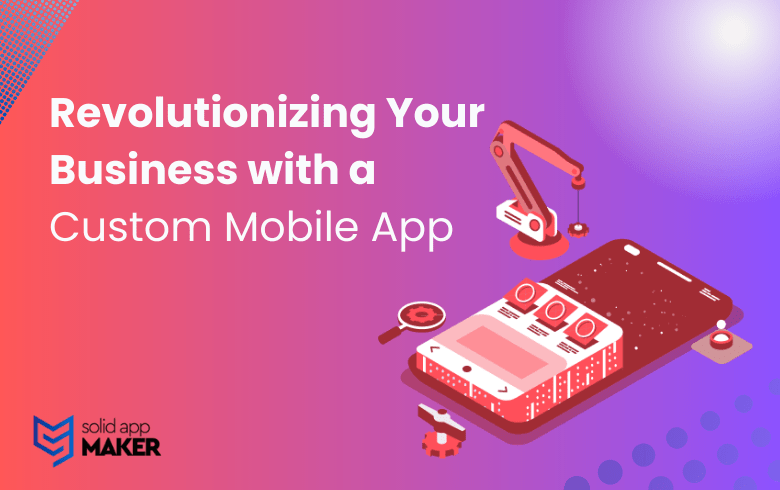The world is at our fingertips, literally. With mobile technology’s continued evolution, businesses are finding it more important than ever to have a mobile presence. Mobile applications, also known as mobile apps, are programs designed for smartphones and tablets that keep us connected to our favorite businesses and services. As a business owner, understanding and implementing a mobile app strategy can play a vital role in staying competitive in today’s digital market.
Understanding Mobile Applications
Mobile applications are designed to provide users with specific functionalities, such as online banking, hotel booking, or social media. They’re classified into three types: Native, Hybrid, and Web Apps.
Native apps are developed for a specific platform like iOS or Android and are installed directly onto the device. Hybrid apps combine elements of both web and native applications. They are hosted inside a native app and use a mobile platform’s WebView, which enables them to access device capabilities like the accelerometer or camera. Web apps are not actual applications; they are websites that feel and look like native applications but aren’t implemented as such.
What is a Progressive Web Application (PWA)?
Progressive Web Applications are web applications that have been enhanced with modern web technologies, allowing them to provide a user experience nearly equivalent to native apps. PWAs can work offline, receive push notifications and even access device hardware, just like native apps.
Mobile Apps vs. PWAs: Key Differences
User Interface: Mobile apps offer a superior user interface (UI) with more fluid animations and transitions. They also have the ability to leverage device-specific features and gestures, providing a more integrated and intuitive experience. PWAs, on the other hand, have more limitations when it comes to UI, but they still offer a good user experience, especially on high-end devices and modern browsers.
Performance and Speed: Native mobile apps have the edge in performance because they can leverage the device’s full potential. They are faster and more efficient, as they run directly on the device’s operating system. PWAs, while still fast and efficient, might not perform as well under heavy loads or complex operations due to the constraints of the web browser.
Offline Capabilities: Both mobile apps and PWAs can function offline, but the functionality might be limited for PWAs depending on the complexity of tasks. Mobile apps can offer more advanced features and capabilities while offline.
Installation Process: Mobile apps need to be downloaded and installed from an app store, which might be a barrier for some users due to data or storage constraints. PWAs, however, are accessed through a browser and can be “installed” directly from the website, providing a more seamless user experience.
Compatibility: Mobile apps need to be developed separately for different operating systems (iOS, Android), while PWAs are cross-platform and can run on any device with a web browser.
Why Does Your Business Need a Mobile App?
Enhanced Customer Engagement: Mobile apps allow businesses to engage with their customers in real time. Whether it’s a retail app offering personalized recommendations or a service app providing support, mobile apps allow businesses to build stronger relationships with their customers.
Brand Recognition: A mobile app can significantly boost brand recognition. If your app is well-designed and performs well, it will leave a good impression on users, contributing to your brand image.
Increased Sales: Mobile apps offer a smoother user experience, which can lead to higher conversion rates compared to websites. With features like push notifications, businesses can also remind customers about their products or services, prompting them to make purchases.
Valuable Customer Insights: Mobile apps can provide a wealth of data about customers’ purchasing habits, preferences, and interactions with the app. These insights can be used to make data-driven decisions and strategies.
Key Features of Mobile Apps
A successful mobile app should have a strong purpose, be intuitive, fast, and deliver value to the customer.
User-friendly Design: The success of a mobile app greatly depends on its user interface and user experience. It should be easy to navigate, intuitive, and responsive to ensure a seamless user experience.
Speed: Just like the user interface, the speed of the app significantly affects user satisfaction. A slow app can lead to user frustration and app abandonment.
Security Features: Given the amount of personal data many apps handle, security is a top priority. Features like data encryption, secure user authentication, and confidentiality agreements are crucial.
Push Notifications: Push notifications are a direct way to communicate with users. They can be used to inform users about new features, promotions, or any other relevant information.
Analytics Tracking: To continually improve and optimize the app, it’s important to monitor user behavior and app performance. This is where analytics come into play.
Social Media Integration: Social media integration not only provides a convenient way for users to share content from the app, but it also increases the app’s visibility and reach.
Cross-Platform Compatibility: To reach a wider audience, the app should be compatible with both iOS and Android platforms.
Offline Capabilities: For apps that aren’t solely reliant on internet connectivity, offering offline capabilities can greatly improve user experience.
The Future of Mobile Apps
As more businesses recognize the benefits of having a mobile app, the demand for them is likely to increase. New technologies like voice-activated commands, augmented reality, and wearable technology will push the boundaries of what is possible with mobile apps.
Over To You
Make your mark in the digital world with a custom mobile app that is designed to fit your business. An app is more than just a trend; it’s a game-changer that can skyrocket sales and make your customer service stand out. Don’t wait to give your business the boost it needs. Get in touch with Solid App Maker today. Our expertise is in building apps that make businesses shine. Let’s work together to create an app that sets you apart from the competition.
Take the leap today!

